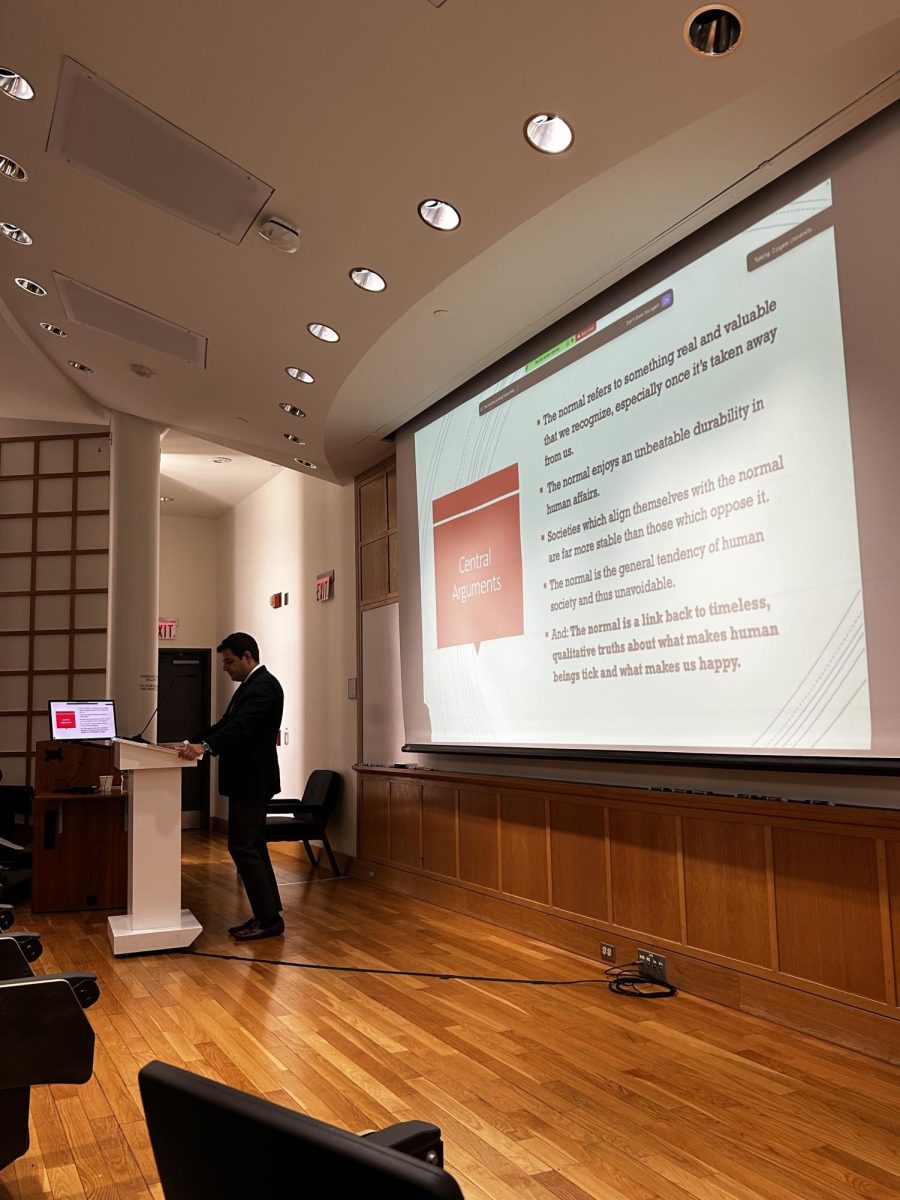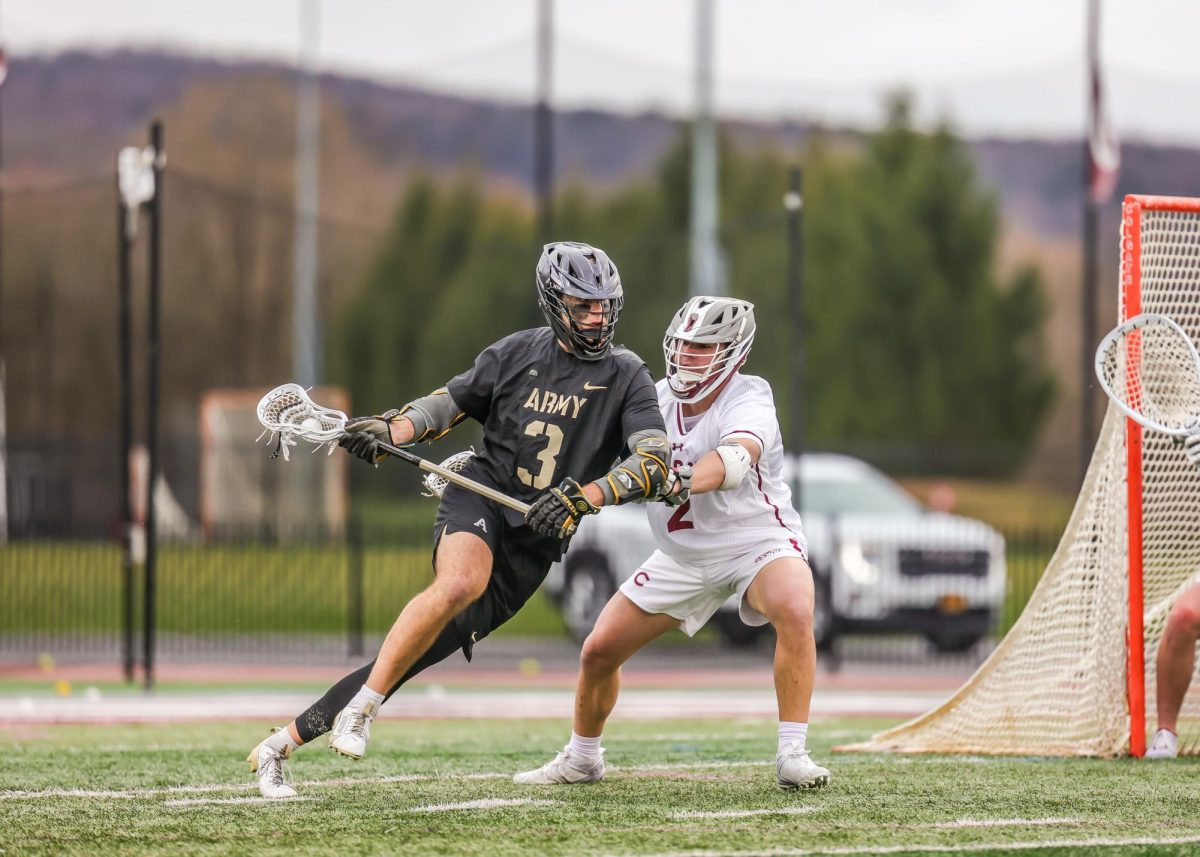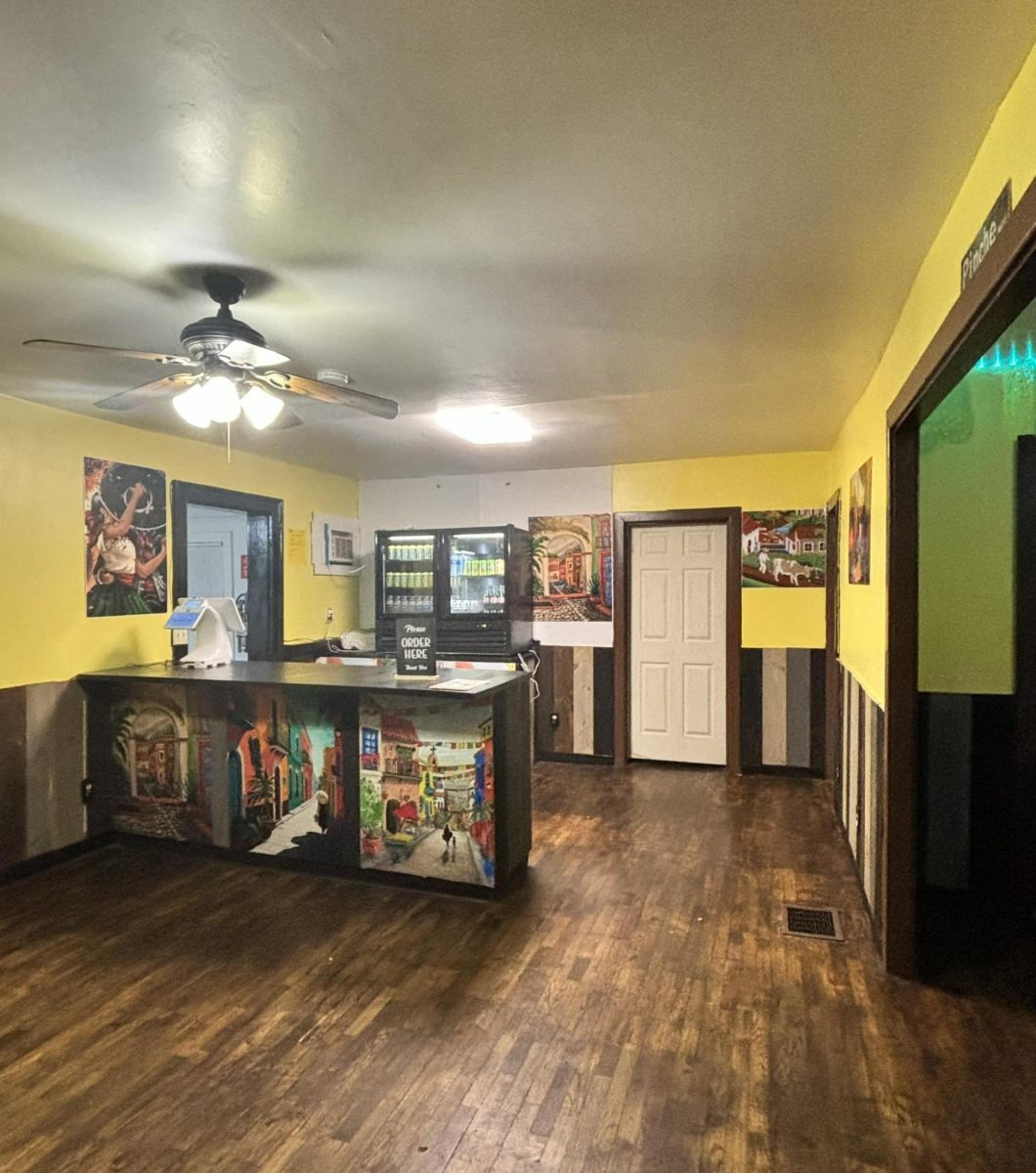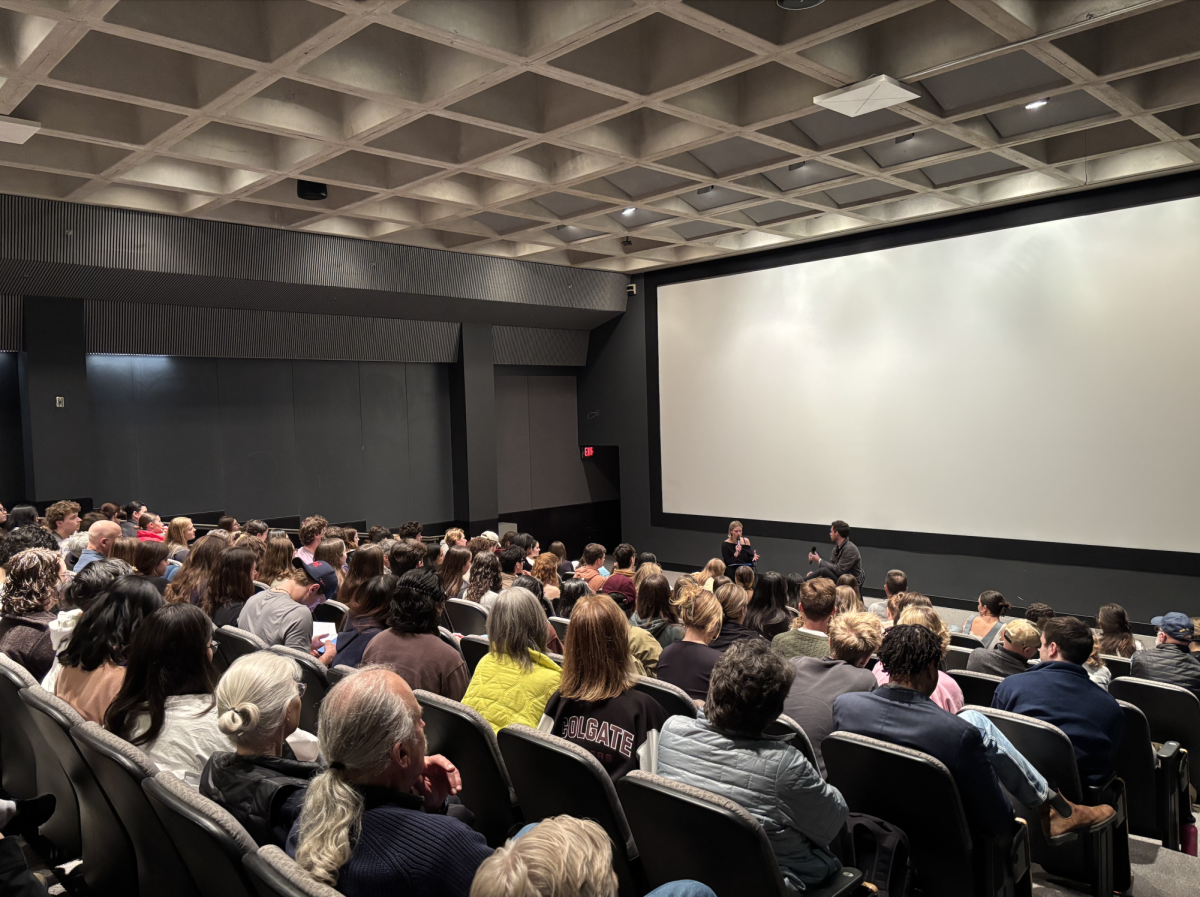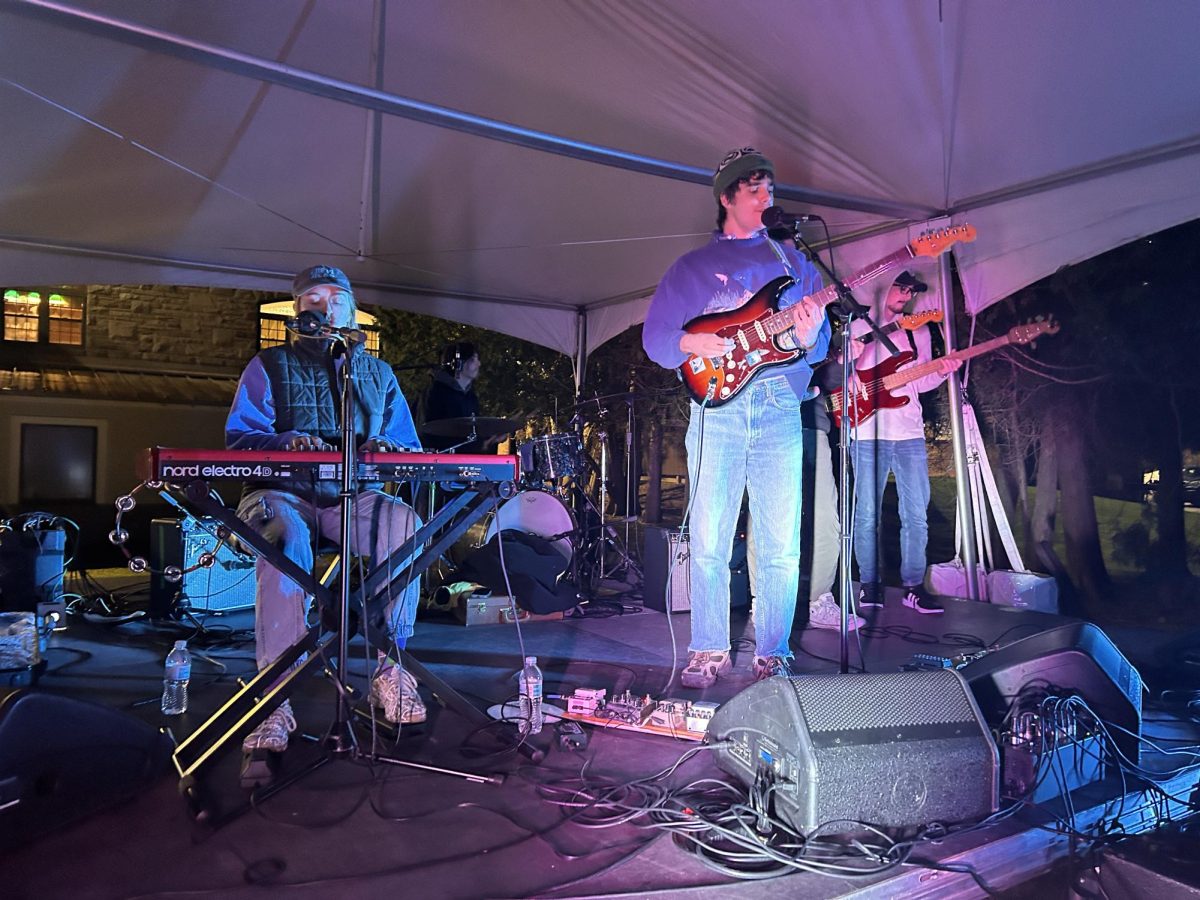Colgate University’s Mabel Dart Colegrove Commons held a talk featuring Interim Director of the Writing & Speaking Center Dr. Suzanne B. Spring as part of its “Big Questions” series on Wednesday, Nov. 8. Spring — who is also known as b — chose to discuss how they became passionate about racial mirrors.
Spring was introduced by Janiiya Hart ’23, a current residential fellow.
“I was introduced to [Spring] my first year here […]. They were the director of OUS first,” Hart said. “[Spring was] also involved in intergroup dialogue.”
The aim of the Big Questions series is to discuss what kinds of questions generally guide the speaker’s life or scholarship. In this case, Spring shared that the topic they think about the most, besides their child, is whiteness. There were two main questions driving Spring’s conversation.
“If we look at white supremacy as a mirror, what truths might we see, especially we as white folks? How might such truths shape everyday life and love?” Spring asked.
Spring discussed race scholar and educator Beverly Tatum’s thoughts on a “looking-glass self.” Tatum writes that other people allow us to see ourselves reflected from the perspective of a dominant culture, like a mirror. The reflection is often a positive image because dominant culture often reflects a desirable image of dominant groups. However, for non-dominant groups, the mirror from the dominant culture can be distorted and negative. Spring described the experience of looking into that distortion as looking into a funhouse mirror.
Spring suggested that the solely positive image of dominant groups is also distorted, which is why they started looking into the mirror of whiteness to see what was being reflected back. They further discussed how looking into mirrors helped them navigate white people still being considered “their people” and white history in the United States as their history. Spring suggested that the desire of liberal white people to distance themselves from conservative white people that they disagree with is disingenuous. If we were to look carefully enough, Spring reasoned, we could see ourselves reflected in the very people we like to insist are our opposites.
“Can I not see myself in Ron DeSantis? Or, can I not see myself in Donald Trump? I can’t say that I don’t,” Spring said. “And I think anyone who does is kind of a liar, especially if they’re white.”
It’s important to note, however, that Spring discusses handling the difficulty of what we may see in the mirror. While we may sometimes look into a mirror and see something undesirable or discouraging reflected back at us, it does not mean we should give up. When we are faced with difficult reflections, there are two options of how to handle it. One is denial and the other is to accept it and figure out what needs to be changed. Spring believes the latter to be possible.
“Does looking in the mirror and seeing something difficult mean now we’ve just got to give up? I just don’t see it that way,” Spring said.
In the end, Spring noted American activist Mariame Kaba’s words on the importance of transforming ourselves. While we may advocate for the transformation of society, Spring contended that if we never change ourselves, we will simply continue to perpetuate an unjust society. They also mentioned the need for more time than a one-hour lecture to explore such complicated topics.
“It’s the kind of conversation that you need more time with. We heard from maybe five, six people, and there’s so many other thoughts,” Spring said. “I’m sure there were a lot of other people in the room that could have said, ‘I have another thing to complicate this with,’ and then it could’ve gotten to another place.”
First-year Christina Harrah was especially impacted by the idea that we are always learning and uncovering aspects of our identities.
“When someone was asking about multiracial mirrors […], I was able to reflect a lot about my own identity as a multiracial person,” Harrah said.





